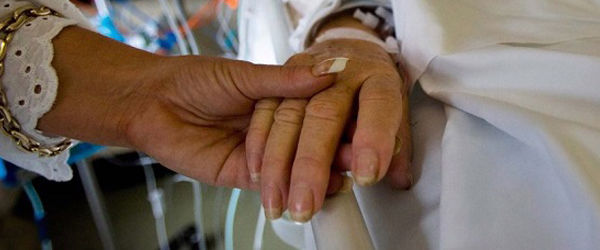"The play's the thing," Shakespeare wrote. The drama being played out in Congress since the lawmakers returned from summer vacation has made for riveting viewing, with cable news channels showing shifting vote totals on crucial bills in real time.But questions arise on the strategy of each house of Congress passing bills knowing they would never get passed in the other chamber, all under the looming shadow of a government shutdown in early October and a deadline for raising the national debt ceiling.It can lead one to wonder whether the high-stakes game of "chicken" serves the public.The answer is no, at least in the mind of leaders of major Catholic organizations."Congress has a responsibility to the American people and millions of them depend on salaries, benefits and programs that the government is responsible for," said Sister Carol Keehan, a Daughter of Charity who is president and CEO of the Catholic Health Association, in a Sept. 18 statement."Shutting down the government of the United States is an enormous disservice to the people," she added. "This is a time for responsible behavior and dialogue that serves the people of this country.""Our expectation is that a brief shutdown would have little if any immediate impact on our service to the poor as funding for our projects is already in the pipeline and should not be interrupted," said a Sept. 19 statement by Michele Brommelsiek, vice president of overseas operations for Catholic Relief Services, the U.S. bishops' international relief and development agency."However, we do urge the government to resolve this budget issue without a shutdown as the uncertainty it creates for our local partners, who receive U.S. government funding, will undermine CRS' policies of empowerment and subsidiarity that are fundamental to our work," Brommelsiek added.Amelia Kegan, a policy analyst for Bread for the World, a Christian citizens' anti-hunger lobby, called the situation "manufactured crisis after manufactured crisis."Kegan said, "In all the major budget deals we have seen over the past 25-30 years, we've seen that it (the deal) doesn't fall on the backs of the poor and vulnerable populations."That started to change Sept. 19, with the House voting 217-210 to cut $39 billion over the next 10 years from the federal Supplemental Nutrition Assistance Program. Sen. Debbie Stabenow, D-Mich., chair of the Senate Agriculture Committee, called the bill "a monumental waste of time.""We are very, very concerned" about the House's 217-210 vote to cut SNAP, formerly known as food stamps, Kagan said. The amount targeted for cutting is twice what the House rejected as part of a failed farm bill earlier in the year, and nearly eight times what the Senate trimmed in the farm bill it passed.Kagan said she thought the SNAP vote, which passed, would be a bellwether for later votes that could build up to the possible showdown — and shutdown.On Sept. 20, the House voted to fund the government but defund federal spending related to the Affordable Care Act, popularly known as Obamacare. The vote was 229-188. Every Republican but one voted for the bill, and all but two Democrats voted in opposition.Joel Friedman, vice president for federal fiscal policy at the Center for Budget and Policy Priorities in Washington, tended to downplay the potential negative effects of a government shutdown, which could happen as early as Oct. 1."For activities that are in fact shut down for lack of funding — and not shut down for the protection of life and property — it's tremendously inconvenient for those individuals or businesses that are affected," Friedman said. Those would include, he noted, "people applying for passports, people applying for visas, people trying to travel, the tourist industry, people who should be hearing about their biomedical research grants and so on and so forth. For them, it's a real mess."It doesn't mean that this real mess for those people has a noticeable effect on the economy as a whole, because the economy as a whole is huge," Friedman said.But the swords-crossing over the debt ceiling is "complete insanity," said Charles Clark, a senior fellow at the Vincentian Center for Church & Society at St. John's University in Jamaica, N.Y. Not raising the ceiling, he added, creates "the risk of causing a financial crisis that would make (the recession year of) 2008 seem like a boom year."Clark said, "The financial system is based on the full faith and credit of the United States government. Everything is measured based on that. That is a risk-free asset that balances portfolios. If that all of a sudden became not risk free. ... you would have chaos. In 2008, the uncertainty was so great that some things froze up in the system."He added, "This would be a hundred times worse — as if you were on the gold standard and a couple days later you found that gold causes cancer and nobody wants it."In Clark's view, "I don't think the shutdown's near as bad as the debt ceiling. The shutdown won't last long, and you can get back (from it). The government can delay paying things, people get laid off, but they'll get hired back. Social Security checks may be late, but they'll come. Whereas with the debt ceiling, no one has a clue as to what will happen afterward. It might not be repairable.""The president (Barack Obama) says he's not negotiating on the debt ceiling. He shouldn't, and he doesn't have to. There are ways where he has to go completely around this," Clark said. "Other countries, they set a budget, they set taxes and if they come up short, they borrow the money. We do the same thing, and then we have to pass a bill that says we can borrow the money."—CNS{gallery width=100 height=100}gallery/2013/0927/shutdown/{/gallery}

